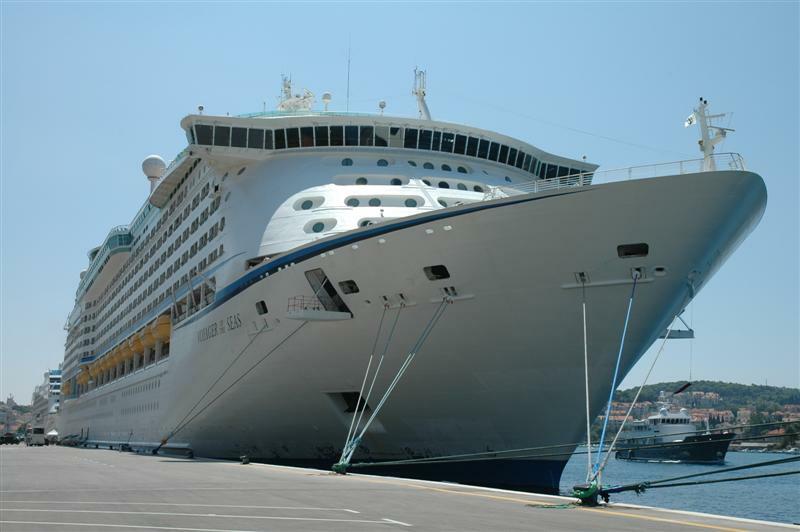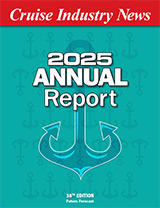 At Royal Caribbean International, the mantra for marine operations is to sail “safely, reliably and in compliance,” according to Captain William Wright, senior vice president of marine operations. While the overriding focus is on safety, the company continues to work to gain further energy efficiencies. With fuel prices not trending in a positive direction, Wright said, efforts to minimize energy usage are 24/7 across the fleet.
At Royal Caribbean International, the mantra for marine operations is to sail “safely, reliably and in compliance,” according to Captain William Wright, senior vice president of marine operations. While the overriding focus is on safety, the company continues to work to gain further energy efficiencies. With fuel prices not trending in a positive direction, Wright said, efforts to minimize energy usage are 24/7 across the fleet.
“We use a variety of means – some technology-based, which have been quite effective, but also by creating shipboard awareness, especially on the hotel side as approximately 45 to 50 percent of the energy consumption is in hotel accommodations.”
On the marine side, Royal Caribbean’s newest initiative is so-called constant speed sailing. That means that a ship will stay at a constant speed on each leg of an itinerary, rather than going fast to begin with, as has usually been the mode in the past, allowing the captain to make sure he reaches the next destination, and then slowing down, when within a safe distance.
Constant speed has resulted in fuel savings in the 3 percent range, according to Wright.
On the safety side, Royal Caribbean has intensified its fire-fighting training, sending officers and crew to fire-fighting school. Wright said school facilities simulated ship interiors using containers bolted together, featuring dog hatches and ladders, and offered what he called advanced training with real fire.
There are also plans to build state-of-the-art bridge and engine room simulators in Miami.
“We are going to ramp up the quality of our training,” Wright continued, “including refresher training for officers.
“We have introduced a comprehensive assessment program, and I believe officers will go into it with a healthy portion of anxiety – as getting through it could be a career decider. It is not designed on a fail or pass basis, but officers will come out with a score, a grade if you will, which the company will use in its succession planning.”
In light of the coming implementation of increasingly strict ECAs, Wright said that Royal Caribbean is testing a scrubber system that it hopes will reduce not only SOx but also NOx and CO2. “We are pushing the envelope, first to satisfy the 2015 requirements for SOx, but also to go beyond that.”
For the coming ballast water treatment regulations, Wright said that the company has developed a short list of treatment systems, noting that until recently the requirements had been a moving target without a clear definition of the standards.
Royal Caribbean has also been applying new non-toxic, long-lasting hull coatings, but Wright said the jury is still out on which coating offers the most protection. In addition to silicone-based coatings, there is a hard coating that lasts longer, but still has to be cleaned regularly.
As for advanced wastewater treatment, Royal Caribbean is ahead of the curve, having helped develop treatment methods since 2003. “We now have a relatively high comfort level with the technology,” Wright noted.
“We do not embrace technology for technology’s sake; it must offer energy savings or serve other relevant operating purposes. We are continuing to explore technology, however, and working to improve our operating standards through procedures and training.”
Excerpt from Cruise Industry News Quarterly Magazine: Winter 2011-2012



